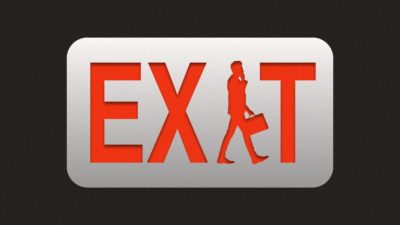Glass Lewis, ISS Grapple With Renewed Risk to Influencer Status
ISS, Glass Lewis face criticism from an oil giant engaged in a bitter proxy fight just as Congress renews scrutiny of advisory firms.

Sign up for smart news, insights, and analysis on the biggest financial stories of the day.
ISS endorsed all four of Elliott Investment Management’s nominees for the Phillips 66 board last week, setting the stage at this week’s shareholder meeting for what could be the year’s most contentious proxy fight.
The influential proxy advisor’s recommendation follows similar backing from rival Glass Lewis for three Elliott nominees and full support from Egan-Jones — delivering significant momentum to the activist investor’s campaign.
Elliott, which acquired a $2.5 billion stake in the Houston-based refiner in February, is pushing Phillips 66 to divest its oil transportation business and implement operational changes aimed at boosting shareholder value.
Unlike most activist campaigns that settle before shareholder votes, this confrontation has escalated into an expensive, no-compromise showdown, with both sides aggressively courting investor support.
Phillips 66 criticized the advisory firms for failing to take a position on Elliott’s proposed company breakup, noting that ISS explicitly stated it wasn’t endorsing this core element of Elliott’s strategy.
The unusually bitter contest reaches its climax Wednesday, when shareholders will determine the future direction of the energy giant.
Capitol Hill Scrutiny Goes Niche
The Phillips 66 proxy fight — which climaxes Wednesday — and the company’s critique of ISS and Glass Lewis happens to come at a time when Washington has its microscope trained on proxy advisors, whose job is making recommendations to shareholders on how to vote on corporate governance issues.
They analyze company data, assess board candidates, and research the details of shareholder proposals. At the end, they offer their view, which doesn’t have to be followed. Their clients are primarily investors — like pension funds or mutual funds — seeking a third-party assessment that can help inform their decisions on everything from executive compensation to board makeup and environmental proposals.
Some of the scrutiny they are currently facing has partisan or ideological motivation. Last month, the Republican-led House Financial Services Subcommittee on Capital Markets convened a hearing with the not-so-subtle title “Exposing the Proxy Advisory Cartel: How ISS & Glass Lewis Influence Markets.”
There are, however, credible business concerns: ISS and Glass Lewis have an estimated 97% market share in the proxy space, which critics have alleged constitutes an anticompetitive duopoly. “That concentration alone would warrant scrutiny,” House Rep. Ann Wagner, a Missouri Republican, said at last month’s hearing.
Others have alleged the issue of real or perceived conflicts of interest. Charles Crain, the managing vice president of policy at the National Association of Manufacturers, criticized ISS at the hearing for having a consulting service “through which it offers guidance to companies on the very topics that will be the subject of ISS’s voting recommendations” and of Glass Lewis for a program where it advises activist investors.
‘Gone and Dead’
Crain’s organization, it should be noted, represents ExxonMobil, which clashed with Glass Lewis last year after the advisory firm said Exxon’s pursuit of a since-dismissed lawsuit against activist shareholders was cause enough to vote against the company’s lead independent director. Glass Lewis and ISS have noted they have procedures to disclose any perceived or real conflicts of interest.
The complaints from businesses don’t end there. JPMorgan CEO Jamie Dimon, one of Wall Street’s most prominent voices, has blasted the two leading proxy firms in recent years, labeling them “incompetent” in March as he criticized their support for diversity initiatives that the corporate world has increasingly abandoned amid pressure from the Trump administration.
Dimon has also been critical of their foreign ownership — Glass Lewis is owned by Canadian private equity firm Peloton Capital, and ISS is majority-owned by German exchange Deutsche Börse — and rather dramatically called for the “gone and dead” elimination of the two proxy firms. (ISS and Glass Lewis have recommended against Dimon’s pay in the past).
In addition to diversity initiatives, proxy advisors have also been criticized by conservatives for supporting environmental, social and governance (ESG) initiatives.
And that’s merely one side of the debate.
Better Markets, a think tank that works on financial regulatory issues, argued in advance of the congressional hearing that proxy advisory firms do a lot of good by giving shareholders “perspective that they would not otherwise receive from corporate management” when it comes to voting in board elections or on shareholder proposals.
High-Dollar Board Games
For example, they noted Glass Lewis recommended to Goldman Sachs shareholders last month that they reject a proposal to pay “egregious” $80 million one-time bonuses to CEO David Solomon and President John Waldron. The resolution passed, but with just 66% support, a considerable drop from the 86% backing for executive compensation in 2024.
Additionally, both firms last year recommended against the reinstatement of a $56 billion bonus for Tesla CEO Elon Musk that was voided by a judge.
Better Markets also flagged a 2023 survey of asset managers by Durham University Business School, in which 85% of respondents said they were satisfied that proxy advisors provided them with accurate and useful information. This, they noted, indicates investors are perfectly happy with the service they are getting.
“It is understandable that corporate management would not want an independent third party to tell shareholders that their executive compensation is excessive,” wrote Benjamin Schiffrin, the think tank’s director of securities policy. “But that is precisely why proxy advisory firms are so important.”
Then-Reuters and now-Financial Times columnist John Foley wrote last year that the duopoly and a lack of accountability for proxy advisory firms are indeed real issues. “It’s hard to gauge whether the recommendations were ‘right’ or not,” he noted, but maintained the firms “ultimately do more good than harm” because they “provoke debate on governance issues that otherwise might go without much scrutiny.”
He also noted that ISS and Glass Lewis don’t offer lockstep advice: When Nelson Peltz’s Trian Management sought a seat on the Walt Disney board last year, he was supported by ISS while Glass Lewis (and Disney shareholders) said no.
While Dimon isn’t a fan, proxy advisors have won the support of another Wall Street titan. The legendary activist investor Carl Icahn has written that they offer crucial advice in a system he says has “always been stacked against shareholders.” He has also noted their usefulness in his own takeover efforts over the years.
Political Proxy Fight. There are mixed findings on how much influence proxy advisories have on shareholder votes. But last year, Stanford University’s Brian Tayan and David Larcker, writing in the Harvard Law School Forum on Corporate Governance, sorted through recent studies and found, in the case of institutional investors, their sway is significant.
One 2022 study found opposition from ISS resulted in a 51% difference in institutional shareholder voting, while it only made a 2% difference among retail shareholders. A 2016 study found that a negative ISS recommendation resulted in a roughly 25% drop in voting support for executive compensation proposals.
A 2018 article in the Harvard Forum, meanwhile, found ISS and Glass Lewis can swing 10% to 30% of shareholder votes.
With that influence in mind, policymakers under recent Democratic and Republican administrations have taken divergent approaches to the proxy voting industry, with the GOP pushing more aggressive regulations.
During President Trump’s first administration in 2020, the SEC adopted rules asserting, among other changes, that the omission of information in proxy advice could amount to fraud, increasing the legal liabilities of Glass Lewis and ISS. The regulator also ordered proxy advisors to share their recommendations with corporate executives sooner.
The SEC under former President Biden rescinded the rules in 2022. But with Trump back and Republicans in Congress describing proxy advisory firms as a “cartel,” there are reasonable expectations that they may face heightened regulation again.
There have also been signs that both firms may take proactive measures to stave off any sort of heightened crackdown. In February, ISS said it would stop considering diversity in its board member recommendations after Trump’s DEI executive order. Glass Lewis chose to keep the criteria, but said it would include more information that could support an alternate vote if it made a recommendation on the basis of diversity.
Last month, Semafor reported that Glass Lewis may even get out of traditional proxy advisory services in the next few years: Rather than making blanket recommendations, the firm is considering helping investors develop their own voting policies, then providing them with data and research tailored around those preferences.
While there is no firm timetable or clear picture of changes yet, the conservative Heritage Foundation’s Project 2025 manifesto favored by many in the Trump administration — some of its authors have joined the White House — targets proxy advisors for “heavily weighted ESG criteria in directing the proxy votes of pension plans.” The paper also recommends passing legislation to create more competition for ISS and Glass Lewis.
Now comes the waiting.











